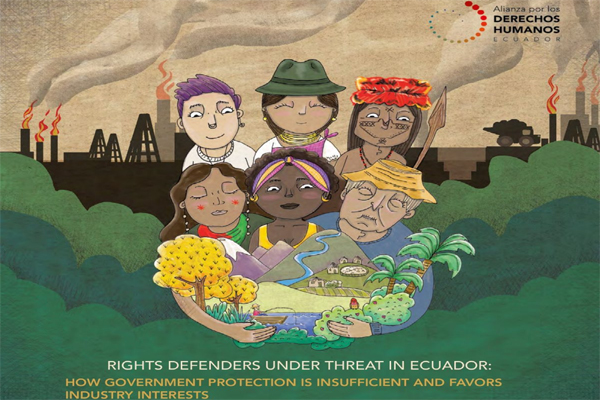
Latin America Daily Briefing
Four months after Ecuador’s government militarized control of the country’s prisons, the human rights costs of the security policy are beginning to be tallied publically. The government has cut off almost all access to the prisons, but stories of torture, abuse and denial of medical attention have begun to seep out through released prisoners, family members, lawyers, and human rights organizations, reports InSight Crime.
In many prisons inmates are on the border of starvation after a dispute between the government and a company contracted to provide food to inmates cut off the supply for prisons across the north of the country, reports InSight Crime.
Last month Human Rights Watch denounced that President Daniel Noboa’s declaration of an “internal armed conflict” has contributed to serious human rights violations by security forces, including at least one apparent extrajudicial killing and multiple cases of arbitrary arrests and ill-treatment.
Testimony from released prisoners details beatings, waterboarding and other abuses, reports El País.

Mexico
- Mexican President Andrés Manuel López Obrador promised to push ahead with Supreme Court reforms, despite market nervousness. AMLO suggested remittances would shore up the country’s economy, reports the Associated Press.
- While AMLO was quiet about discussions with foreign leaders after his 2018 victory, Claudia Sheinbaum has issued a string of posts and a video about all the foreign leaders she has spoken to so far, notes Catherine Osborn in the Latin America Brief. “In her victory speech, she said she wants to maintain friendly and respectful relations with Washington—and bring Mexico closer to “the South and the Caribbean.” Those places went unmentioned in López Obrador’s victory address.”
Migration
- After U.S. President Joe Biden shut down the country’s border for asylum seekers this week, “the question is how broadly it can be enforced,” according to the New York Times.
Colombia
- “Changes in the leadership of Colombia’s illicit crop substitution program and problems in its implementation raise questions about how organized crime is hindering the government initiative,” reports InSight Crime.
Regional
- A Saudi Arabia-run summit in Rio de Janeiro next week is the latest step in the Gulf nation’s increased engagement with the region, reports Americas Quarterly.
Argentina
- Argentine President Javier Milei is poised to dissolve the government department responsible for responding to gender violence. This latest part of his profound austerity push has prompted furious backlash from activists in a country where 78 cases of femicide have been documented so far this year. (Guardian)
Uruguay
- The remains of Amelia Snajuro, a Uruguayan woman who was abducted by security forces during the country’s military dictatorship nearly 50 years ago, has received a proper burial, after investigators used DNA testing to identify bone fragments. (Guardian)
Haiti
- “A half-dozen men convicted in the plot to kill Haitian President Jovenel Moïse must pay his widow and elder son $6.2 million in compensation for their loss, according to a federal judge’s restitution order in a Miami criminal case,” reports the Miami Herald.
- Two 18th century cannons, Haitian national treasures taken in battle from European powers, have vanished without a trace from inside the locked museum’s gallery, reports the Miami Herald.
Jordana Timerman / Latin America Daily Briefing
latinamericadailybriefing.blogspot 06 07 2024












